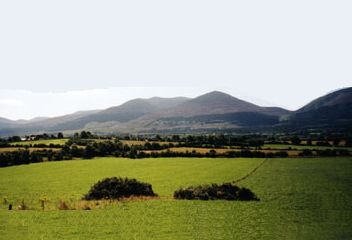|
|
|


|
General Liam Lynch is an extremely important figure in Irish history because of the part he played in gaining Irish Independence - first as Commandant of Cork No. 2 Brigade and later as the Commandant of the First Southern Division. The part he played with Michael Collins, Mulcahy and others in trying to avoid a Civil War and his efforts to achieve a Thirty-Two County Republic, rather than a partitioned State, should not be under-estimated.
 Recruiting Office WW1 Patrick Street Cork City He was elected in 1917 as First Lieutenant of the Irish Volunteer Company in Fermoy where he worked at Barry's Hardware Store. In 1918 he left his employment to devote full time to the Volunteers and avoided arrest and deportation to England in doing so. On 17-18 May, 1918, 73 people were thus arrested and deported after the British authorities claimed they were involved in a mythical German plot.
 The National Pledge The first World War ended that November on the 11th. Up until then the fear of Conscription by the British of young Irish lads, filled the Volunteer army ranks. However, with this fear gone, many men pulled out of the Volunteers and for a time morale declined, but not for long. One month later in December 1918, the results of the general election boosted morale when 73 of 105 seats endorsed the actions of the 1916 Easter Rising. The Irish People wanted an Irish Republic.
From the start he always said that "we have declared for an Irish Replublic
and we will not live under any other law." He was determined "that the war will
go on until the independence of our country is recognised by our enemies, foreign
and domestic."
He reorganized the Cork Volunteers in 1919 and commanded an effective Brigade in
the Anglo-Irish War of Independence. He was a member of the Irish Republican Army
Supreme Council, Chief of Staff of the IRA, established the IRA Executive, March 1922.
He was an influential opponent of the 1921 Treaty.
Although he resigned over the seizure of the Four Courts, he joined its
garrison in June, 1922.
 Knockmealdown Mountains Commander of the first southern division of the "Irregulars" he sought to hold the "Munster Republic" and issued the "orders of frightfulness" against the Provisional government. While preparing to come to terms with them in April, 1923, he was shot while trying to escape Free State troops. It was 9 a.m. He ordered his men to leave him in a cave half way up Knockmealdown Mountain as he was mortally wounded. The Free State troups found him there and carried him down the mountain to Newcastle. A priest and a doctor were called for, and at 3.15p.m. an ambulance took him to St. Joseph's Hospital, Clonmel where he died at 8.45 that night. Some of his last words were "When I die tell my people I want to be buried with Fitzgerald in Fermoy .... the greatest friend I had".
 Graves of Liam Lynch and Michael Fitzgerald Kilcrumper Cemetery For the next few days his body rested in an uncovered coffin in St. Joseph's Church. General Liam Lynch died as he wished, on an Irish mountain, fighting. He was 29 years of age. For the next few days his body rested in an uncovered coffin in St. Joseph's Church. General Liam Lynch died as he wished, on an Irish mountain, fighting. He was 29 years of age. Twelve years later, on 7th April, 1935, on the spot where Liam Lynch fell, they dedicated a monument to him. A sixty foot high round tower was erected on that spot, built with the volunteer labor of many of his old friends and comrades and replacing the simple wooden cross that had stood there for many years. A crowd estimated at fifteen thousand gathered that day to honour a man who had dedicated his live, and given his life, to the cause of Irish freedom.  The author, Paudie McGrath at the Liam Lynch Memorial, Knockmealdown Mountains
|
